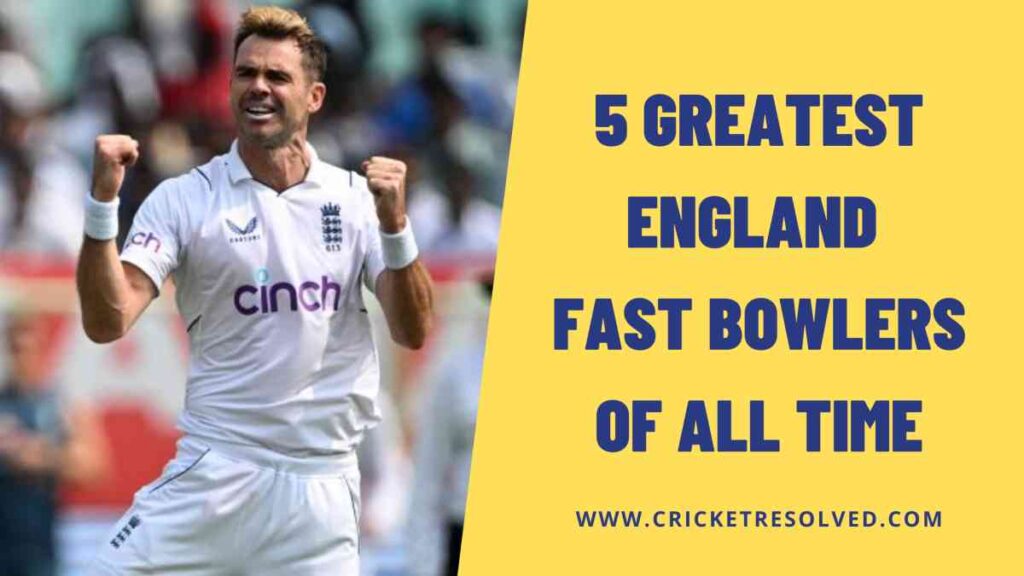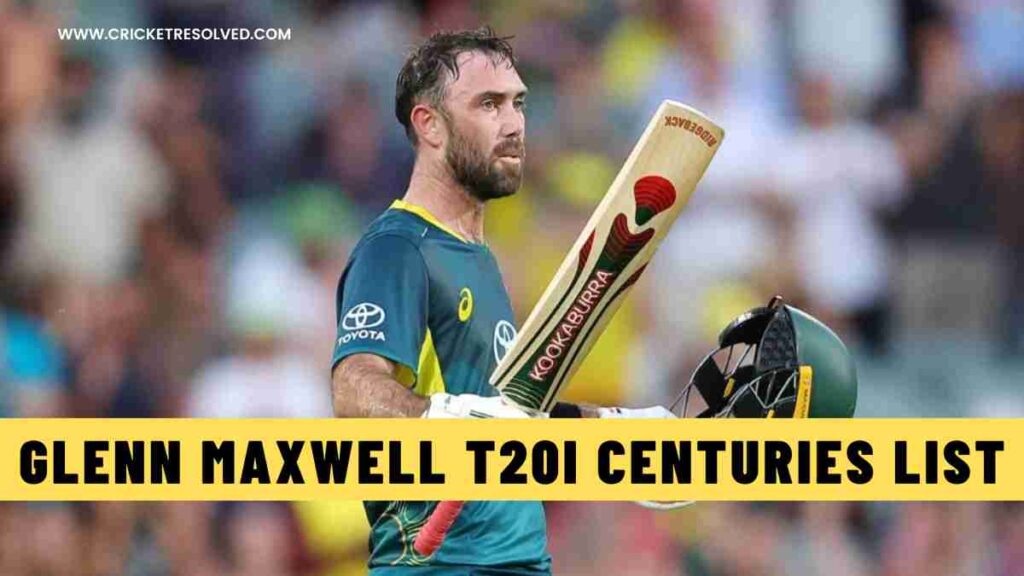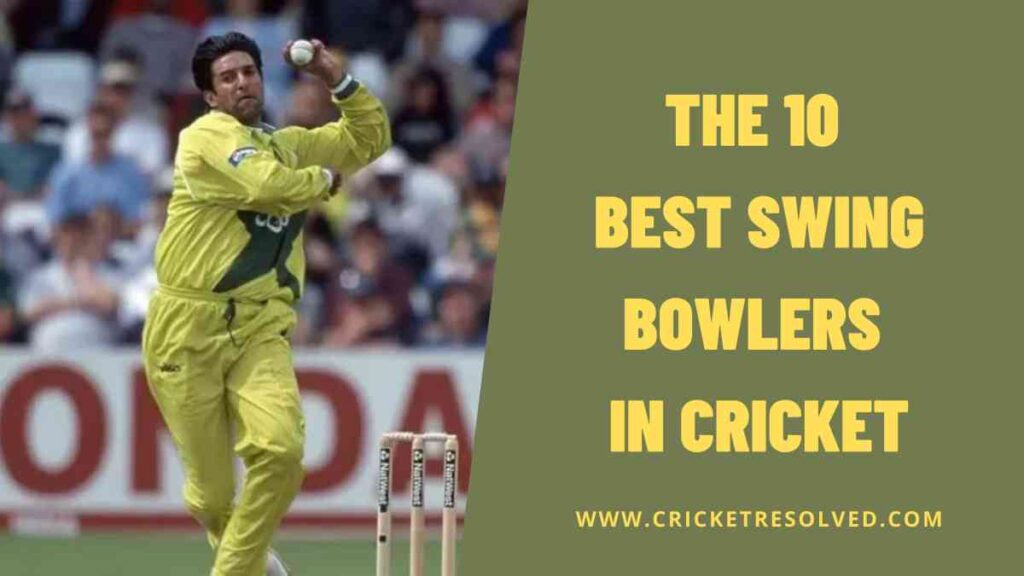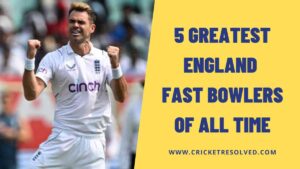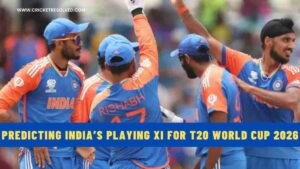Umpiring in cricket, or any sport, is a challenging task. They are completely chastised when they make a mistake but rarely applauded when they make the correct decision. The introduction of the Decision Review System (DRS) has put the umpires in the spotlight.
The best cricket umpires are those who make the fewest errors overall. Without a doubt, they are the ones who keep the peace and uphold the rules of one of the most popular games, Cricket.
In this article, let’s take a look at the best cricket umpires of all time and their significance in cricket history.
10. Tony Hill (New Zealand)
The ICC assigned Hill to umpire neutral matches away from New Zealand to assist the Elite Panel, with particular highlights including the third test between South Africa and Australia in Johannesburg in March 2006, as well as officiating on the field at three Group A matches at the 2007 Cricket World Cup in St. Kitts.
Hill was appointed to the International Cricket Council’s Elite Panel of Umpires in 2009. He officiated in 40 International Tests, 96 One Day Internationals, and 17 Twenty20 Internationals.
9. Darrell Hair (Australia)
In January 1992, Hair began his umpiring career by officiating a Test match between Australia and India in Adelaide. His stint was mired in some controversial calls. One of them being against Pakistan.
On the fourth day of the fourth Test between England and Pakistan at The Oval in 2006, Hair and colleague umpire Billy Doctrove found that the Pakistani squad had engaged in ball-tampering. England was given five penalty runs and a replacement ball. In protest, Pakistani players refused to take the pitch after the tea break.
His actions in that Test match were later examined at an ICC board meeting, and it was resolved that he should not umpire matches involving test-playing nations in the future. On August 22, 2008, Hair resigned from the ICC to pursue a coaching post.
Before resigning, Hair officiated in 78 Test matches, 141 ODI matches, and 6 T20I matches.
Also Read | 5 Controversial Umpiring Decisions in Cricket History
8. Rudi Koertzen (South Africa)
Rudi Koertzen began his career as an umpire in 1981, presiding over domestic games. Rudi then made his international debut in 1992, umpiring in his first ODI between South Africa and India. Later, he made his test debut during the same trip, this time against South Africa.
Rudi upped the bar for umpiring when he became a full-time ICC umpire in 1997 and rapidly rose to the Elite Umpires Panel.
Rudi got the International Cricket Council’s Bronze Bails Award for 100 One-Day Internationals, the International Cricket Council’s Silver Bails Award for 200 One-Day Internationals, and the International Cricket Council’s Golden Bails Award for 100 Tests. In addition, he was the first umpire to officiate in 200 One Day Internationals (ODIs).
7. Daryl Harper (Australia)
Before starting out as a cricket umpire, Daryl Harper officiated Australian football matches as a referee. Harper then started his umpiring career in 1983.
In 2002, he became the first Australian umpire to be named to the ICC’s Elite Umpires Panel, a position he held until 2011. Harper had a stellar career as an umpire, officiating at 95 Tests, 176 ODIs, and 10 T20Is. Later, in 2011, ICC stated that Harper would step down at the end of his contract in July 2011.
Harper retired from umpiring in June 2011, following criticism from India during the India-West Indies Test series. He received the ICC Bronze Bail Award for his 100 One Day International umpiring performances.
6. Billy Bowden (New Zealand)
Billy Bowden was appointed to the ICC Elite Umpires Panel in 2003. Billy, who is now retired, is well known for his unusual umpiring signals, including the dancing jig when signalling a sixer and his crooked index finger to adjudicate a batsman.
He had the distinction of presiding over two ICC World Cup 2003 matches where hat-tricks were taken. He received the ICC Bronze Bails Award in 2007 for officiating in 100 One Day Internationals.
5. Aleem Dar (Pakistan)
He made his debut as an international umpire at the age of 30 in a match between Pakistan and Sri Lanka in 2000. He was appointed to the ICC’s top panel of umpires two years later.
In 2009, 2010, and 2011, he received three consecutive ICC Umpire of the Year awards. He has also been honoured with “The Pride of Performance Award Pakistan.” Aleem Dar had a fantastic World Cup 2011, winning a battle against DRS challenges with 15 consecutive correct judgements.
4. Simon Taufel (Australia)
After winning the ICC Umpire of the Year Award five times in a row from 2004 to 2008, Taufel is regarded as one of the best officials. Taufel officiated in 74 tests, 174 ODIs, and 34 Twenty20 Internationals.
After the 2012 ICC World Twenty20 final, he declared his retirement from international cricket and started a new job as an umpire performance and training manager.
3. Marais Erasmus (South Africa)
Marais Erasmus is currently regarded as one of the most respected umpires on the circuit. Since 2008, he has been serving as an ICC umpire, presiding over 79 Tests, 116 ODIs, and 43 T20Is.
Since he has played First-Class cricket in South Africa, he has an advantage over other umpires who have not played at such high levels.
2. Nigel Llong (England)
Nigel Llong is an English umpire who has worked in international cricket since 2005. He was a member of the ICC’s Elite Panel of Umpires until June 2020. Llong, like Erasmus, has played First-Class cricket, but in England.
Llong officiated in 62 Test matches, 130 ODIs, and 32 T20Is.
1. Dickie Bird (England)
Dickie Bird is widely regarded as the best cricket umpire of all time. He also had a fan following, although he officiated in considerably fewer games than his other compatriots. From 1973 to 1996, Dickie Bird worked as an international umpire.
Everyone who played during his era admired him. Bird received a standing ovation after retiring from the India vs. England Test match at Lords in 1996. He was, in his own words, “married to the game.”
Bird has also written his autobiography, which has sold over a million copies worldwide. In addition, for his achievements in cricket and philanthropy, he received an MBE in 1986 and an OBE in 2012.
Read Next | Decoding the Duties of Umpires in Cricket: A Comprehensive Guide

